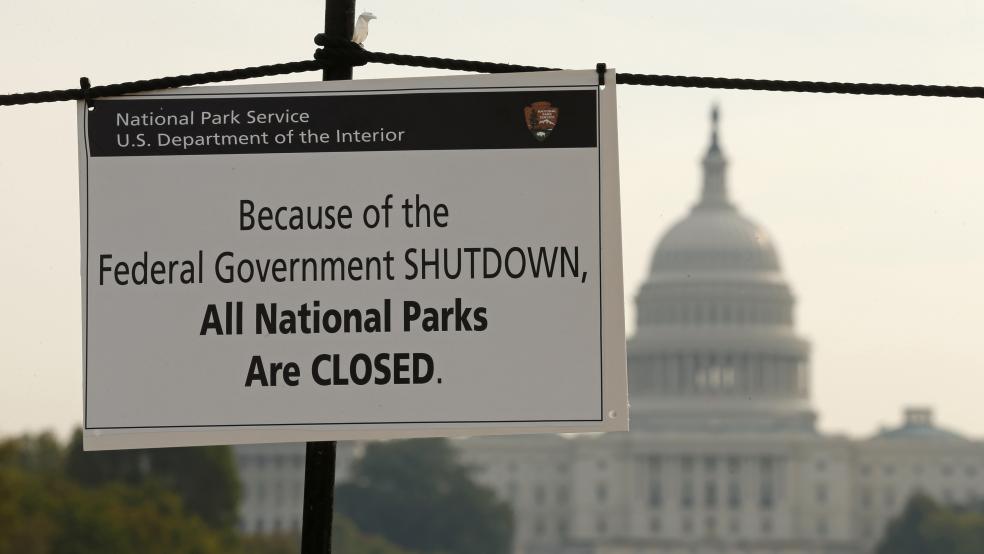The already-complicated effort to avert a government shutdown on April 29 is taking on another layer of complexity, with the White House demanding that any spending measure that funds the federal government for the rest of fiscal 2017 contain money to pay for the first stages of President Trump’s proposed wall along the Mexican border.
As things stand right now, the current continuing resolution that gives the executive branch the authority to spend money on things like employee paychecks, contractors’ invoices and other day-to-day expenses that keep the government running will expire at the end of next week. Lawmakers, who won’t even make it back to Washington until four days before, have been trying to come to an agreement and were reportedly making progress.
Related: Why You Might Not Get Your Tax Refund on Time This Year
However, in remarks Thursday, White House Office of Management and Budget Director Mick Mulvaney said that the president expects a long-term funding bill to do more than just fund the federal government at existing levels.
“We want more money for defense, we want to build a border wall, and we want more money for immigration enforcement, law enforcement,” he said during an appearance at a conference hosted by the Institute of International Finance.
Mulvaney called the effort to fund the government “the first real test of whether or not the Democrats — specifically in the Senate — are interested in negotiating, interested in compromising.” He added, “If they tell us to pound sand, I think that's probably a disappointing indicator of where the next four years is going to go," he said
The compromise Mulvaney and the White House appear to have in mind is that the Republicans will agree to continue paying for an element of the Affordable Care Act that provides risk-sharing payments to compensate insurers that offer coverage to patients who use a large amount of health care services. In exchange, Democrats agree to fund the wall.
Related: After Their Break, Congress Will Have 4 Days to Avoid a Shutdown
However, after a year and a half of insisting that Mexico would pay for the wall, Trump’s demand that Congress begin funding the project with taxpayer dollars is not sitting well with Democrats, who almost uniformly oppose the idea of walling off the southern border. It’s also bothering a fair number of Republicans who view the wall as more of a presidential vanity project than a serious element of US immigration policy.
It’s also unclear just what the White House thinks it would accomplish by eliminating the payments to insurers. Doing so would put the ACA’s health care exchanges in serious danger of collapse, something that could lead to millions of Americans losing their insurance, and would be rightly depicted by the law’s supporters as an act of deliberate sabotage by the Trump administration.
The White House’s decision to insert itself into budget negotiations isn’t sitting well with members of Congress, who have been working behind the scenes in an effort to avoid a costly and embarrassing shutdown fight.
"Everything had been moving smoothly until the administration moved in with a heavy hand," Matt House, a spokesman for Senate Minority Leader Chuck Schumer told The Washington Post. "Not only are Democrats opposed to the wall, there is significant Republican opposition as well.”
Related: Trump Hands Democrats Another Reason to Shut Down the Government
“For most of this bill, there is agreement," Rep. Tom Cole (R-OK) told USA Today. “If we start having people — whether it’s the administration or this or that group within our own (Republican) conference — that decide they have to have this or that … I don’t think whatever the potential gain is worth the gamble.”
He added, “The powers that be, both in leadership and at the other end of Pennsylvania Avenue, need to not give us demands that simply can't be met.”





